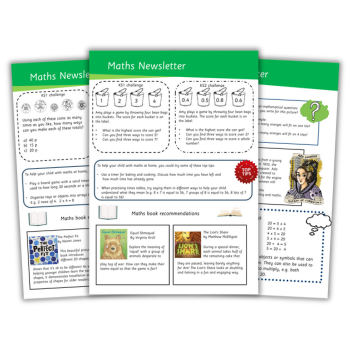Maths with parents – We boosted parent engagement by running maths boosters for mums

We invited mums to our after-school 'Wobbly Girls Club' maths booster group and it made all the difference, say Mary Fraser and Kate Nuttall…

Maths lessons at our school, Cherry Tree Primary in Bolton, are no doubt very similar to those all over the country, especially when you take a look at many of the girls.
They’re engaged; they have magnificent work ethic; some even double underline everything in different coloured biro. But time and time again, we find that underneath the veneer of ‘perfection’ they are sensitive children who won’t ask questions and are afraid to make mistakes.
They believe that by getting something wrong, they’re really rubbish at the subject and their confidence takes a nosedive.
We decided to do a bit of research. On the surface, the girls’ work rate was amazing, but there was something lacking when it came to their self belief and self confidence. When we looked more closely, we realised that there was a connection between these children and the amount of home engagement and support they received.
What we actually discovered was that a lot of mums were worried about maths. They felt as though they weren’t very good at maths themselves, and this was coming across through the girls in school.
We decided to start an after-school booster group. We invited the mums of our ‘wobbly girls’ (as we had begun to affectionately call them) and used the teaching tool Learning by Questions which has online question sets that are scaffolded and guide learners through, building them up from basic understanding to full mastery.
It also gives helpful feedback for every answer, so learners feel like they can have another go and get better.
It was brilliant to see parents getting involved. At first they were saying things like, “I can’t do these questions”, “this is really difficult”, “how are we going to do this?”. But then the girls started to show their mums how to work out the maths and before long, mums were saying, “I could never have done this when I was at school!”.
Trending
One of our ‘wobbly girls’ said, ‘Our mums came into school because they wanted to know how we do things and how hard it was. My mum isn’t really good at maths but I think her confidence grew. As the weeks went by she was shouting out the answers and everything! I was like, “I thought this was my maths group, not the parents’ maths group!”.
Another added, “The boys show off because they think they can do everything. Now, because we’ve had a boost of confidence, the girls are like them. We can now say, “Well, we can do it too – it’s not just you!””. Another aspect of maths that we found was affecting home support was that many parents were not sure if they were helping their children the right way, or contradicting methods being taught in school. For these mums to have a go and see exactly what we do in a way that was really accessible broke down a few barriers.
What’s more, that class achieved the best results we’d had in four years. Since the pandemic our Wobbly Girls Club has expanded to cover everyone and other subjects. It’s never been more necessary to involve and include parents in learning and sometimes that means bringing them along too. An injection of confidence can go a long, long way.
How to help your ‘wobbly’ pupils
- Pre-teach topics with ‘wobbly children’ before class. Having a grasp of a concept before a lesson increases confidence in those children who tend to panic.
- Provide opportunities for girls to work in small groups. Creating a safe space where girls can make mistakes and learn the power of a wrong answer is crucial.
- Involve parents in their child’s maths through joint boosters and workshops. You might be surprised about how popular this is!
- Make it personal. By using cross-curricular approaches and telling young women about famous female mathematicians, girls can see how maths is relevant to them and not just something for boys.
Mary Fraser is headteacher and Kate Nuttall is Y6 teacher and maths lead at Cherry Tree Primary School in Bolton. They are ambassadors for Learning by Questions.











